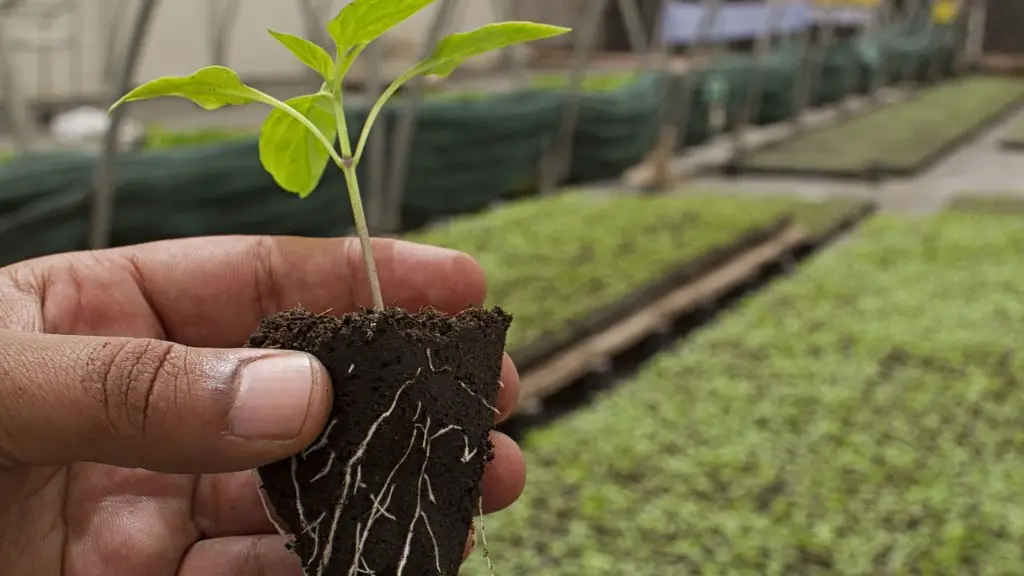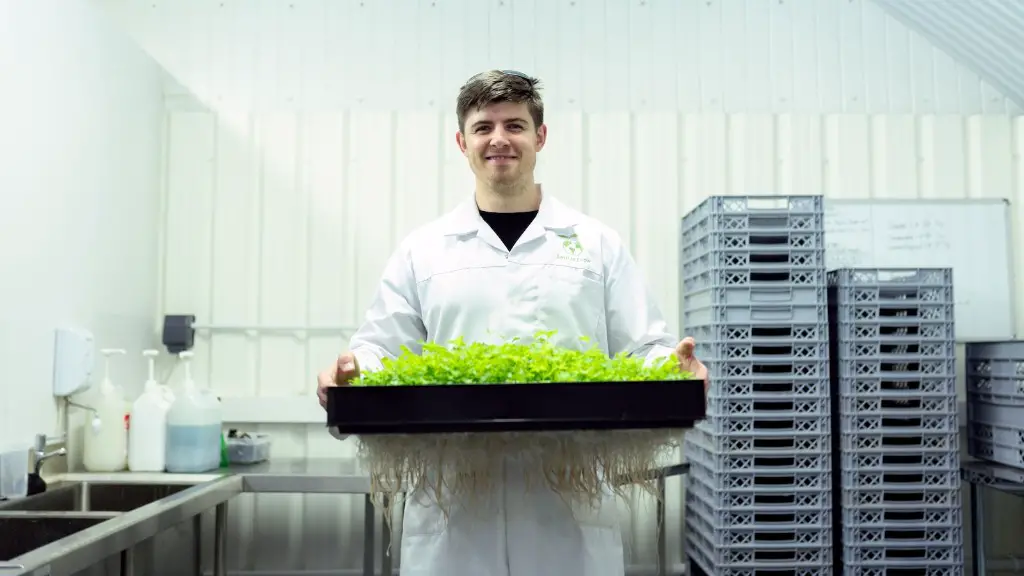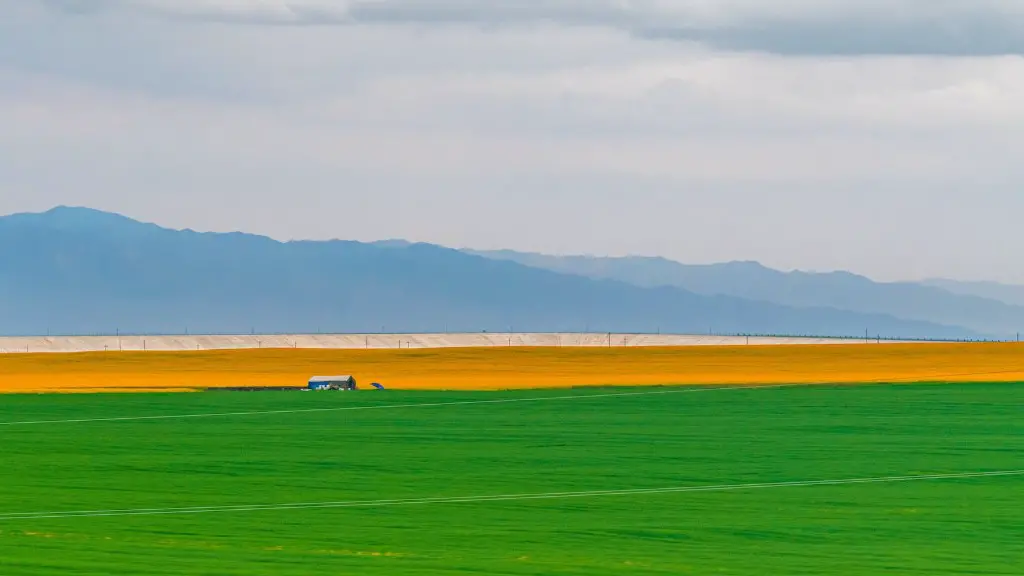There is no simple answer to the question of whether or not a degree in agriculture is worth it. The value of such a degree depends largely on the individual’s circumstances and career goals. However, there are some general considerations that can be made when determining if a degree in agriculture is worth the time and money.
Those who are looking to enter into the agricultural field may find that a degree in agriculture gives them the specific skills and knowledge they need to be successful. Many jobs in the agricultural industry require at least a bachelor’s degree, so having a degree in agriculture can make candidates more competitive.
Of course, the cost of earning a degree in agriculture should also be taken into account. Agricultural degrees can be expensive, and not all students will be able to afford the tuition. However, there are many financial aid options available, and many employers are willing to help offset the cost of tuition.
Overall, there is no easy answer to whether or not a degree in agriculture is worth it. The best way to make a decision is to weigh the pros and cons against each other and make a decision based on what is best for the individual.
There is no one answer to this question as it depends on the individual’s goals and circumstances. However, a degree in agriculture can provide individuals with the knowledge and skills necessary to be successful in the field. Additionally, the degree may open up doors to career opportunities that would not be available otherwise. Therefore, it is generally advisable to consider the individual’s goals and objectives when making a decision about whether or not a degree in agriculture is worth it.
Which degree is best for agriculture?
Agriculture courses are highly interdisciplinary, requiring students to have a good grasp of both natural sciences and social sciences, and drawing on areas such as biology, environmental sciences, chemistry, economics and business and management.
This makes for a very well-rounded education, and provides students with the skills and knowledge they need to succeed in a variety of career paths, from farming and agribusiness to environmental policy and science.
The highest paying jobs in agriculture are typically those that require a specialized skill set, such as engineering or veterinary medicine. Farm managers and sales representatives may also earn a good wage, depending on the size and scope of the operation they work for. With the ever-changing landscape of the agricultural industry, there is always a need for new and innovative technologies and products – meaning that there is good potential for job growth in this sector.
What is the best career in agriculture
There are many top careers in agriculture that can lead to a very successful and fulfilling career. Agricultural engineers work to design and improve agricultural systems and equipment. Agricultural economists research and analyze economic data to help farmers and policy makers make informed decisions. Farm managers oversee the day-to-day operations of a farm. Soil and plant scientists conduct research to improve crop yield and soil health. Conservation planners develop plans to protect and conserve natural resources. Commercial horticulturalists grow and sell plants. Agricultural salespeople sell agricultural products and services.
The agriculture major is not particularly hard. It is not as challenging as STEM and healthcare majors, but since it is an interdisciplinary field, encompassing anything from biology, chemistry, economics to marketing, agriculture majors have to study very well in order to earn a bachelor’s degree.
What agricultural jobs are in demand?
The agricultural industry is growing and there is a demand for agricultural economists in a variety of positions. Graduates in agricultural economics are relatively plentiful, but they can apply for jobs in operational positions, marketing and logistics. There is also a growing demand for specialists in the handling and logistics of horticultural crops, fruit, vegetables, grain and oilseed crops and animals.
The job outlook for farmers, ranchers, and other agricultural managers is expected to decline over the next decade. However, about 85,600 openings are projected each year, on average.
Can you make a living in agriculture?
Agriculture is a great opportunity for anyone to make an income, whether on a large or small scale. There are also plenty of career options in agriculture. As the world keeps turning, there are now many ways that you can earn from agriculture without owning a farm or even being physically present on the farm.
There is no doubt that agriculture is a great field to pursue as a major. Not only does it provide ample job opportunities, but a degree in agriculture can also help you land a better position in the industry. With a degree in agriculture, you will have a better understanding of the business and be able to contribute more to your employer. There are many other possible opportunities that you can pursue with a degree in agriculture, so if you are considering a career in this field, definitely consider getting a degree in agriculture.
Is agriculture a good career option
It is a great opportunity for a career in agriculture. The job is best suited for those who have a keen enthusiasm in the agricultural settings and want to apply their engineering knowledge in that field. The company is one of the leading agricultural companies in the world and is always looking for talented engineers to join their team.
There is an urgent need to increase crop yields to feed a growing population in India, even as increased agri production depletes already declining water tables and soil health. Making matters worse are the advancing effects of climate change.
Does agriculture make good money?
The best agriculture jobs can pay up to $100,000 per year. Agriculture science and engineering careers focus on soil, plant life cycles, irrigation, or farm machinery. You could also work in this industry as a livestock veterinarian.
South Africa’s average agriculture salary is quite high compared to other countries. Entry-level positions still offer a good salary, while experienced workers can make a very good living. The high salaries in this sector are due to the high demand for skilled workers and the lack of supply. This means that there are plenty of opportunities for those with the right skills and experience.
What are the disadvantages of agriculture
There are a few problems with large-scale, conventional farming:
-It focuses on intensive single crop production, which can be bad for the environment if that crop isn’t managed properly.
-It is mechanized, which means it relies heavily on fossil fuels, pesticides, antibiotics, and synthetic fertilizers. This can pollute air and water, and deplete soil fertility.
-It can contribute to climate change, as the farming methods mentioned above can release greenhouse gases into the atmosphere.
The 16 Easiest College Majors – 2023 Rankings
1. Psychology
2. Criminal Justice
3. English
4. Education
5. Religious Studies
6. Social Work
7. Sociology
8. Communications
These are the easiest college majors for students to pursue in 2023, according to recent rankings. Students interested in these majors can expect to find plenty of job opportunities and relatively low competition for jobs upon graduation.
What is the hardest BS degree?
There are many opinions on what the hardest degree subjects are. Some people believe that the hardest degree subject are those that are the most challenging academically. Others believe that the hardest degree subjects are those that require the most time and effort outside of the classroom. And still others believe that the hardest degree subjects are those that lead to the most stressful and demanding careers. Whichever perspective you subscribe to, there is no doubt that there are some degree subjects that are more difficult than others.
Some of the hardest degree subjects include: Aerospace Engineering, Law, Chartered Accountancy, Architecture, Chemistry, Medicine, Pharmacy, Psychology, Statistics, Nursing, Physics, Astrophysics, Biomedical Engineering, Astronomy, and Dentistry. These subjects are challenging for a variety of reasons. They may be theoretical and complex, they may require a lot of practical work, or they may be simply very time-consuming. Whatever the reason, students studying these subjects need to be prepared for a challenge.
An agricultural consultant provides advice to farmers and other agricultural businesses on a variety of topics, including crop production, animal husbandry, farm management, and food safety. An estates manager is responsible for the day-to-day management of a land-based estate, such as a farm, park, or nature reserve. A farm manager is responsible for the day-to-day running of a farm, including planning and overseeing the work of farm staff, managing crops and livestock, and maintaining farm buildings and equipment. A fish farm manager is responsible for the day-to-day running of a fish farm, including planning and overseeing the work of farm staff, managing fish stocks, and maintaining fish farming equipment. A plant breeder/geneticist is responsible for developing new varieties of plants, by selecting and cross-breeding existing plants to create plants with desired characteristics. A rural practice surveyor carries out surveys of rural land and property, in order to provide information for planning applications, mortgage valuations, and other purposes. A soil scientist studies soil, in order to understand its physical, chemical, and biological properties, and how it responds to different types of management. A horticulturist is responsible for the cultivation of plants, including the care and propagation of plants
Warp Up
There is no one definitive answer to this question. Some factors to consider include the specific field of agriculture you wish to pursue, the average salary for that field, and the job market outlook for the next decade. Other things to consider include the cost of tuition and the amount of debt you will have after graduation. Ultimately, the decision of whether or not a degree in agriculture is worth it, comes down to the individual.
I believe that a degree in agriculture is definitely worth it. It’s a field that is essential to our everyday lives, and it’s a field that is constantly evolving. With a degree in agriculture, you will have the opportunity to learn about the latest innovations and technologies, and you will be able to help make a difference in the world.





